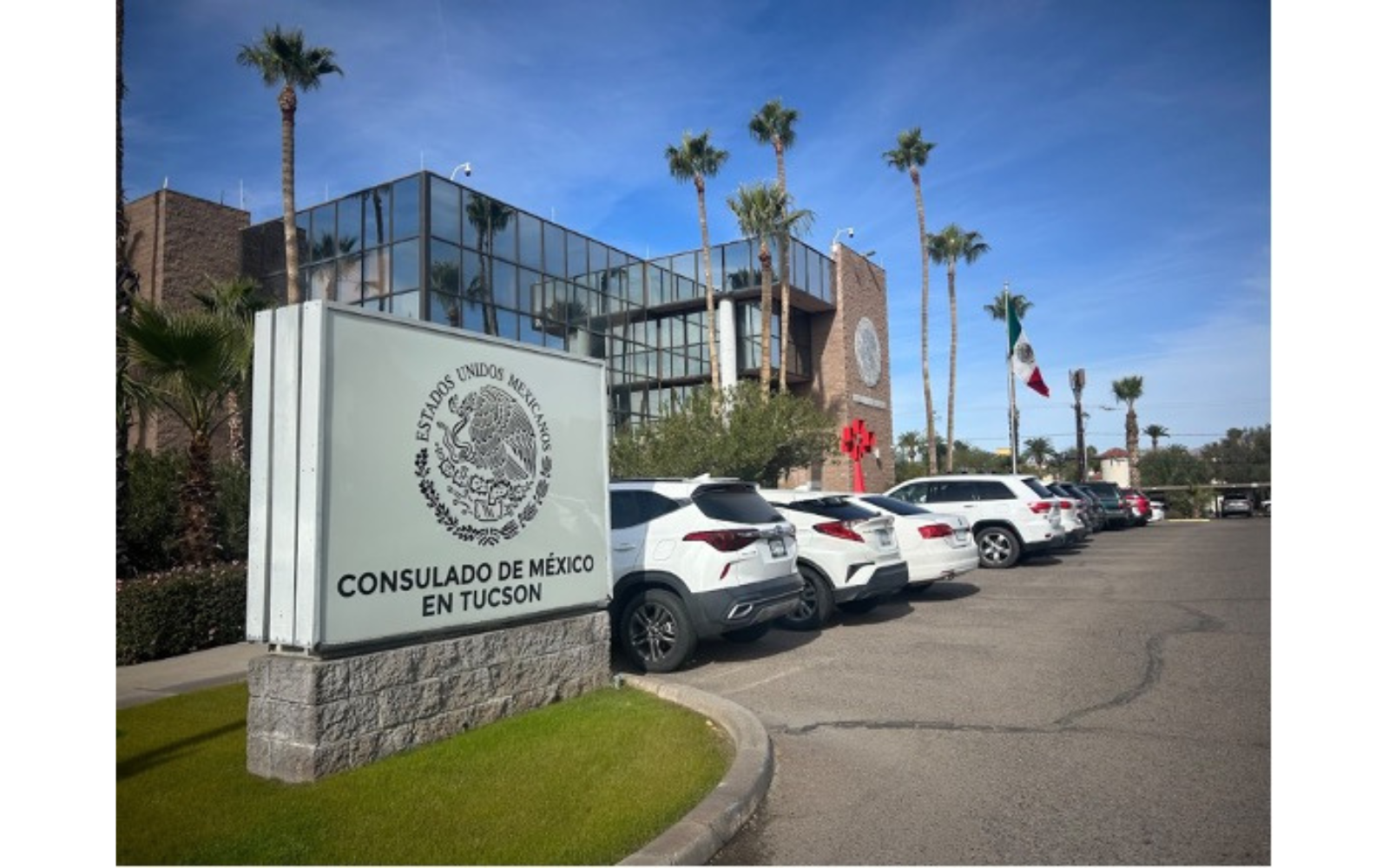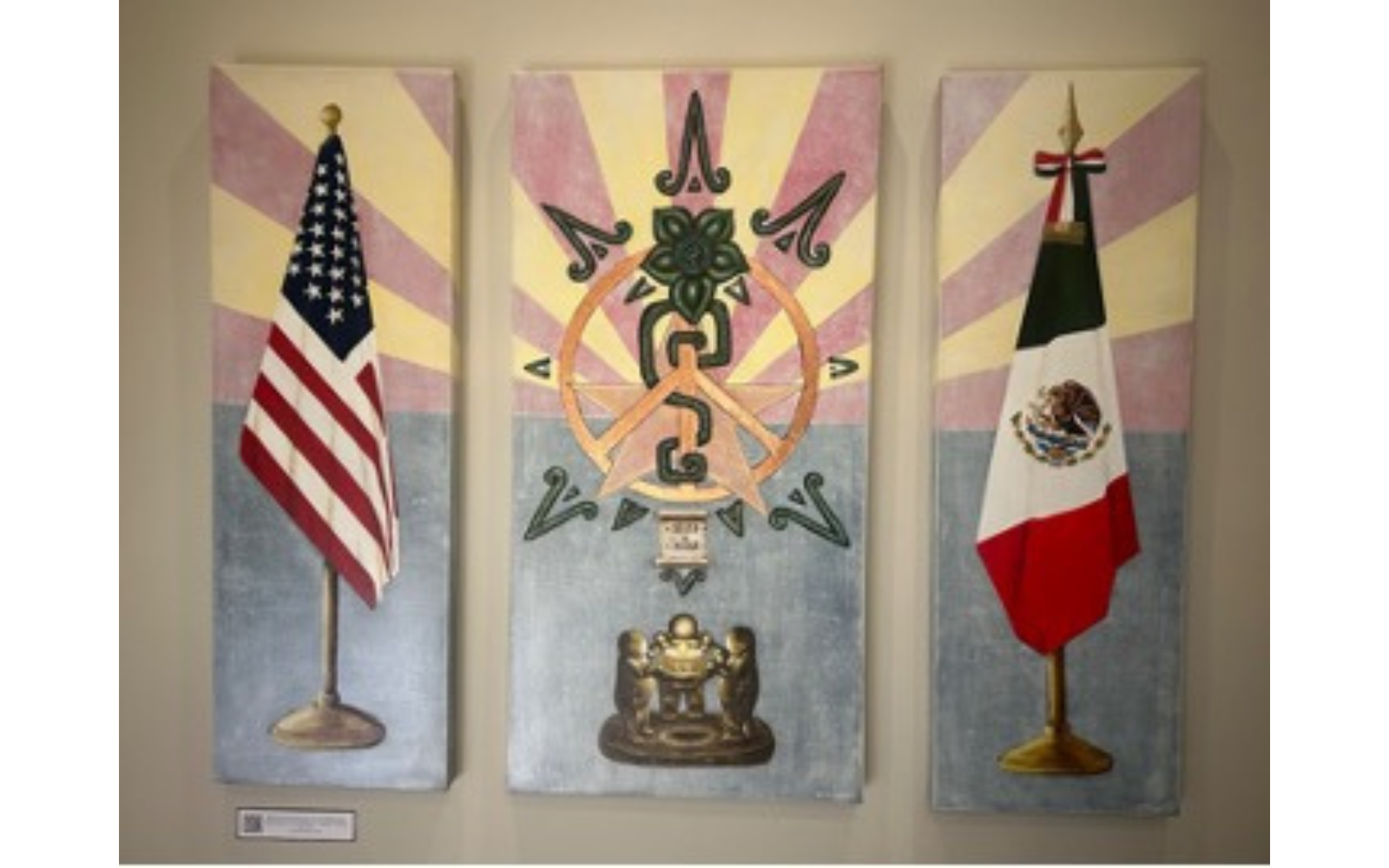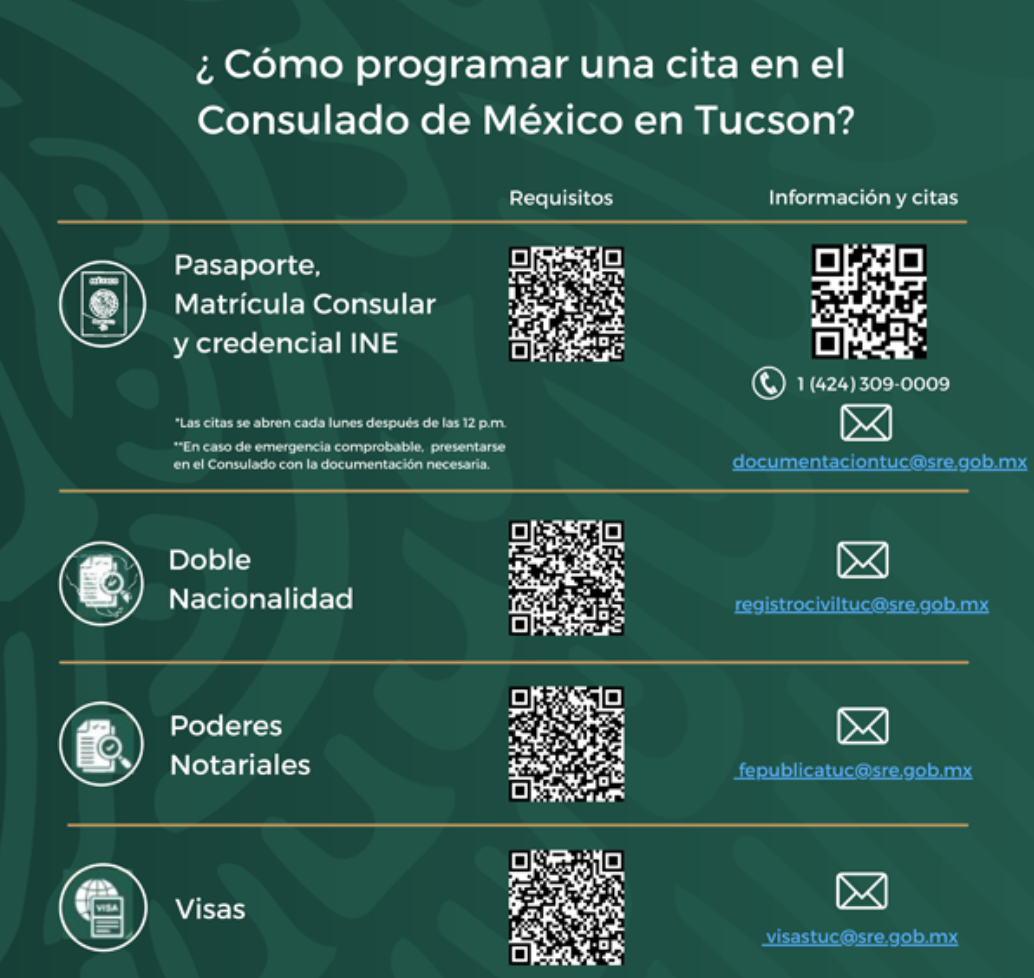Dual citizenship with Mexico gains momentum in Southern Arizona
With threats of mass deportations from incoming president Donald Trump, many people believe that securing their dual citizenship is more important than ever.

For many people, the new year is about turning the page and starting fresh. It’s a chance to create new healthy habits and do things they’ve been putting off.
And this year, for a lot of people living in Southern Arizona, securing their dual citizenship with Mexico is on that list.
Dual citizenship is when a person is a legal citizen of two countries at the same time, allowing for them to enjoy the rights and responsibilities reserved for legal residents of both countries.
“If one has the right to another nationality, although it is a procedure and you have to gather papers and you have to do this and you have to do that, it is very worth it because it gives us more opportunities and gives us more rights,” Mexican Consul Rafael Barceló Durazo told Tucson Spotlight during a recent visit.
With threats of mass deportations from incoming president Donald Trump, many people believe that securing their dual citizenship is more important than ever.
“For those families that could be part of this deportation, it is important that the children who were born here already have their Mexican documents,” Barceló Durazo said. “If at some point their decision is for the whole family to go to Mexico, it will be much easier for those children to get to school, study,” among other things.
While there are many other reasons a person would want to have dual citizenship, Barceló Durazo highlighted several key benefits that people with dual citizenship with Mexico can enjoy, including learning about one's heritage and identity.
“For many people it is important to know, 'My father was Mexican, my mother was Mexican, they were both Mexican, so I am Mexican because the Mexican Constitution says so,’” Barceló Durazo said.

Dual citizenship also allows a person to study, work or do business in Mexico. And higher education is more affordable in Mexico with some schools, like National Autonomous University of Mexico, offering free tuition to anyone who is fluent in Spanish and can pass a rigorous test.
Being a citizen of both countries also makes it easier to conduct business in the U.S. and Mexico, Barceló Durazo said.
Another perk is the right to vote in both countries’ elections.
“I tell them they are super citizens because they can vote in the elections here and they can vote in the federal elections in Mexico,” Barceló Durazo said. “It is a great wonder because you can participate politically in the two countries that you love the most.”
If a person is planning to travel or stay in Mexico for an extended period of time, having dual citizenship means they won’t need to apply for a visa. While U.S. citizens aren’t required to apply for a visa for short trips, they must get one if they plan on staying for longer periods of time.
And if a person wants to own beachfront property in Mexico, they can’t do that as a foreigner.
Non-citizens can’t own a house 50 minutes from the beach or 100 meters from the border unless it's through a land trust. This rule goes all the way back to 1836, when Anglo Saxons populated the Rio Bravo (now Rio Grande) region and waged an independence war against Mexico, eventually becoming Texas.
It’s because of this situation that Mexico does not allow foreigners to own property in those locations, including inherited land.
The process of applying for dual citizenship is different depending on whether a person applies in the United States or in their home country.
The application can be done in Mexico or at any Mexican Consulate, with Barceló Durazo saying the process is much simpler through the consulate.
In Mexico, the procedure is called ‘registration of the record,” meaning a person’s record must be apostilled, or authenticated.

A person can register in the U.S. at any Mexican Consulate by themselves, but having one or both parents can help simplify the process. If a person’s father participates in the process, it’s much easier, but a person can also apply through their mother.
“Paternity is not presumed,” Barceló Durazo said. “Paternity must be proven if the father is not present, but if they were married to your mother before you were born, you have to bring the marriage certificate and the father does not have to be present.”
When the applicant goes into the consulate for their appointment, they’ll receive a free copy of their Mexican birth certificate and will also be given the option to apply for their passport on the spot.
“It's actually quite simple,” Barceló Durazo said.
But that wasn’t always the case.
Before 1998, when a person became a naturalized U.S. citizen, he or she immediately renounced their Mexican citizenship. It wasn’t possible to be a citizen of both countries.
But the laws changed, thanks to advocacy work by Mexican and Mexican-American families who had maintained their strong cultural identities, values and ties to their motherland.
“Mexican families said, ‘I want to be both. I am an American citizen here. I have my life … But I also go to Mexico, and I want to have my life in Mexico,’” Barceló Durazo said.
In 2021, eligibility for dual citizenship in the U.S. and Mexico was extended indefinitely to second, third, fourth and future generation Mexicans.
More than 50 other countries allow dual citizenship with the U.S., but Mexico’s regional closeness and long integrated history creates a different meaning for this community that is both American and Mexican.
Many people feel as if the border crossed them, meaning that their families had deep roots in the region even before it was acquired by the U.S.
Dual citizenship, while a process, allows holders to be “200 percenters,” a phrase used to describe Mexican-Americans as 100% Mexican and 100% American.
“It allows us to be really very integrated as countries, not only for the commercial issue, but also for the social issue,” Barceló Durazo said. “Socially we are very connected, particularly in the borderlands, but in reality, throughout the geography of the United States there are people who have a deep bond with Mexico and if they have both nationalities they can come and go and (enjoy the benefits of) both countries.”
1. Fill out the “Birth Registration Application.”
2. Gather all the necessary documents, including a U.S. birth certificate and a picture I.D. (this can be an ID, passport, student ID or a sealed medical letter from a pediatrician for children under 7 years old). While the U.S. birth certificate is kept at the Mexican Consulate, a person can request an indefinite amount of original birth certificates through Pima County’s Vital Records.
3. Parents will need to submit some documents as well. Firstly, proof of Mexican nationality such as a Mexican birth certificate, a current passport, a Mexican Consular Identification Card (CID) or a letter of naturalization. Secondly, a photo ID such as a book format passport, CID, a voter identification card, a license or a death certificate. A marriage certificate is required in some cases.
4. Scan or photograph the documents and email them to Tucson’s Mexican Consulate at registrociviltuc@sre.gob.mx. Different consulates have different processes.
5. The consul will reach out once the documents have been reviewed and a person will be able to make an appointment to come into the Consulate with two witnesses, as well as the parent(s) they’ll be filing through.
6. At that same appointment, the person will receive their Mexican birth certificate, free of charge – though any additional certificates and filing for the Mexican visa come with a fee.
Susan Barnett is Deputy Editor of Tucson Spotlight and a graduate student at the University of Arizona. She previously worked for La Estrella de Tucson. Contact her at susan@tucsonspotlight.org.
Tucson Spotlight is a community-based newsroom that provides paid opportunities for students and rising journalists in Southern Arizona. Please support our work with a paid subscription.



